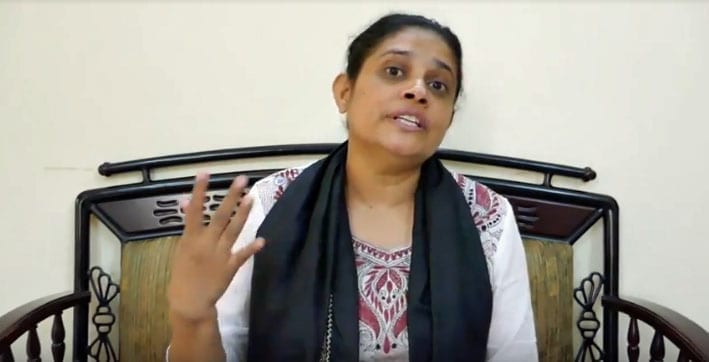
Jun 12, 2018
Bangladesh garment worker and union leader Nazma Akter is among women challenging obstacles to leadership in their unions, their workplaces and their communities.
Founder and president of the AWAJ Foundation and Sommilito Garments Sramik Federation, Nazma says “Women in Bangladesh, especially at the grassroots, are taking the initiative for leadership and we hope it will be more and more.”
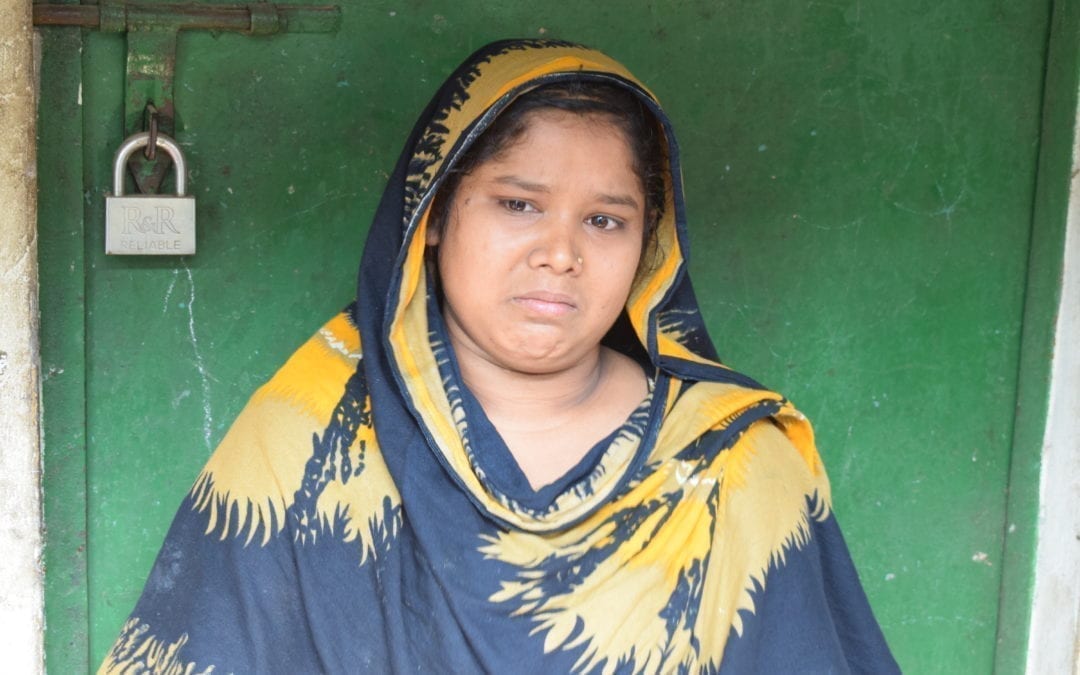
Apr 6, 2018
I am Ziasmin Sultana. I came to Dhaka at a very young age with my family and got married two years later in 2007. I was happy with my family even though our earnings were not much. It was in 2011 that I joined a factory in Rana Plaza hoping to provide for our growing family. I worked there for two years before the collapse.
There were about 1,000 workers on the second floor where I worked. There were no ceiling fans. The only ventilation we had was from the windows which was not enough, making it a very hot environment. I had to work overtime frequently as the basic salary was not much; going there at 8 a.m. and coming back at midnight. Moreover, we were frequently humiliated both verbally and physically. If the operators were caught talking to each other, they were made to stand on a stool at the front of the line holding their ears. This was our life.
This all changed on April 24, 2013. The previous day, we had seen cracks [in the building] form right in front of our eyes. We did not want to enter the building the next day but they announced that it was safe to enter, they had it checked with an engineer. So we reluctantly went in. At about 8:45 a.m., the electricity went out and the generator was turned on. Instantly, the building was shaking violently and we ran for our lives, fearing that danger was imminent.
Entering the stairway was nearly impossible as it became overcrowded. Just then, there was black smoke and suddenly, I found myself falling. Everything happened in an instant and it was dark everywhere. When I came to my senses, I realized that three of us have survived and everyone else around us was dead. I thought this is where my grave would be, as there was no way to escape.
After many hours, we could see a glimpse of light and we crawled towards it over the lifeless bodies of our colleagues. The rescuers found us and they came down with ropes. I did not have the strength to hold on to it, but I realized that this was not the end of me after all. They took me to a hospital to be treated and I was physically well after a few days.
Even after five years, I can still hear the cries of my colleagues who were crushed under the concrete. Sometimes I cannot sleep—I am gripped with fear that the ceiling is falling over me and I run to another room in the middle of the night. It is difficult for me to work, as I frequently become ill and tired.
Still, our lives move on. It is true that the salary has increased but the managers’ behavior has not improved. We have to keep working with our mouths sealed. But after what I have been through, I realize how lucky I have been and I hope that things will improve for my children in the future.
As told to Istiak, an intern in the Solidarity Center Bangladesh office.
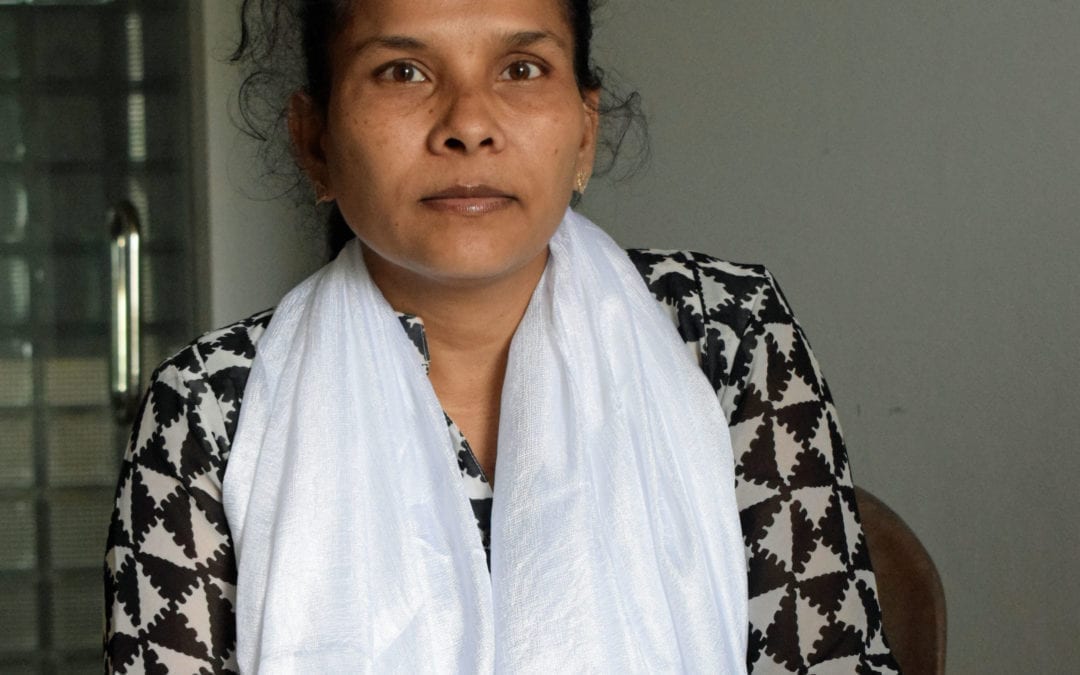
Apr 5, 2018
I am Khadiza Akhter, vice president of the Sommilito Garments Sramik Federation (SGSF), where I have worked since 2008.
I started to work in a garment factory at a very young age. My family was poor, so I did not have the luxury to continue my education. One day I came to know about a federation (BIGUF) which was led by women. As women leaders were rare I went to attend one of the sessions of that federation. There, for the first time, I heard about labor law.
Factories did not follow Bangladeshi labor law. When I tried to raise voice against malpractices, my supervisors threatened my job. Our factory did not have an active union so I could not take any legal action against such abuse, but I received training in labor law from my federation. Eventually I was blacklisted in the garment sector for my union work, but BIGUF offered me a job and I worked there for six years as an organizer.
In 2008, I joined Sommilito Garments Sramik Federation (SGSF). And I did try to unite workers to form an active union for a factory in Dhaka, but the government rejected the registration of the union.
The Rana Plaza disaster changed perspectives. The entire working community realized that same kind of disaster could have happened to them, so they became more focused on a safe working environment. Many workers came to Ashulia to protest.
SGSF started to work with union members to identify unsafe buildings. Our trained organizers conducted fire and safety training for educating general members. They were interested to come to our training so that they could understand legal requirements for ensuring the safety of the factories.
The Accord on Fire and Building Safety in Bangladesh (the Accord) and the Alliance for Bangladesh Worker Safety (the Alliance) contributed to ensuring the safety of the factories but there is lots more work to be done. For instance, no routine or monthly check up is done in most factories. Additionally, fire extinguishers and other equipment are not maintained by the management. Here, almost all the safety committee exists only on paper. We are now working in this arena for maintaining the standard of fire safety. This is a big task in the future.
Apr 5, 2018
My name is Shamima Aktar and I am a responsible member of my society working as an organizer at Bangladesh Garment and Industrial Workers’ Federation (BGIWF). This was not the case 10 years back. My father was diagnosed with cancer and our family of seven had difficulty making ends meet. Thus, I had to begin working when I was in eighth grade in a small organization that help street children in my community.
From then on, I never looked back, I worked in a garments factory and still managed to acquire a GPA 5 in SSC examination, and this made my father proud. But I did not forget about the hardship that my colleagues and I went through in the garments factory. We were deprived of our basic rights and even more, we did not even know what our rights were. There were chronic shortage of drinking water, bathroom facilities and space for moving around. I always wished I could do something to improve the conditions, do something so that we could receive the minimal facilities.
Then in 2014, I joined BGIWF. I got the opportunity to struggle toward those goals of mine. Things were already on the move due to the Rana Plaza tragedy just a year back. Infrastructure was improving, emergency exit and fire safety was put in place and many factories were relocated from residential buildings to Ashulia, Savar and Narayanganj.
I believed that the workers must be aware of their rights and they must be united to achieve them. That is what we do at BGIWF—we train them to let them know what they deserve and we empower them so that they can claim their rights from the factory owners.
This work has put me in difficult situations and I would like to share one such event. In one factory where we helped to organize a trade union, the factory management called a meeting with us and the union to talk about a demand made by the worker’s union that the salaries must be paid [in a timely fashion]. The factory management would not grant it, and at one point we were locked and beaten. But what moved me was that hearing about our abuse, 17 trade unions around the community immediately came to our aid and barricaded the factory we were in.
Thus, I gathered my courage that the work we were doing was meaningful to many. The workers needed us on their side to be able to live in peace and I wish to [continue organizing workers] no matter how difficult it is for me.
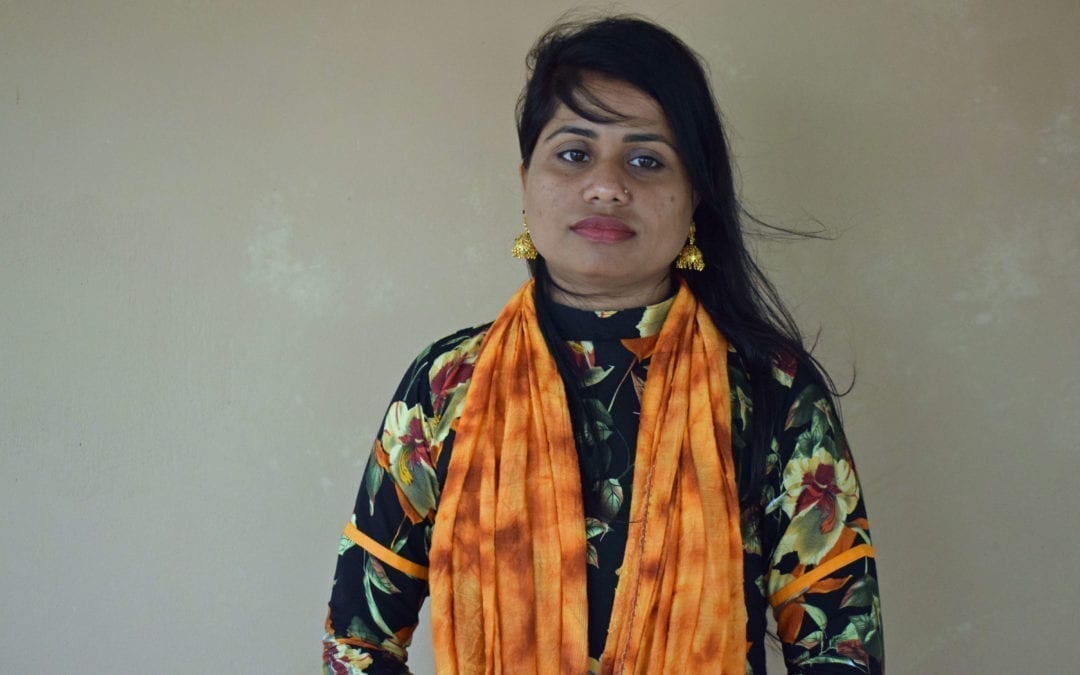
Apr 3, 2018
I am Monira Akter, working with Bangladesh Independent Garment Workers Union Federation (BIGUF) as an organizer for the past six years. I saw how my elder sister was abused and sometimes beaten in her garment factory, and that is when I decided that I wished to work for the rights and safety of all those brothers and sisters of the factory.
They were forced to work long hours without extra payment, sacked if absent for a day or two and had no trade union to voice their claims. It distressed me when I saw my sister returning home at night tired and sick with no time to spend with us or her husband. But we had no choice as we had five mouths to feed with no father or elder brother.
After the Rana Plaza disaster, there have been major changes which had not occurred in many years. Building and fire safety gave a sense of security for the workers in their workplace. They feel they will not lose theirs or their close ones’ lives in an accident just like Rana Plaza and thus are able to work feeling secured. Moreover, I am proud that we have been able to create leaders among the workers by organizing them into trade unions. In the past this would have been close to impossible.
I have worked day and night, went to gates of factories to talk to the workers, walked with them to their homes to earn their trust and to make them aware of how they are being exploited and deprived of their rights. So far, we have united 2,250 workers into trade unions and they say that we give them courage and hope. For me, these words are enough to encourage me to work on for them.
Some of their stories moved me. Once one of them told me that due to some reason a worker was ordered to leave the job immediately but instead she called our office right away. The manager seeing this told her to come back and keep working! This showed us how relevant we have become to the lives of workers and how we can influence the decisions of factory owners on worker rights.
A second story was about Mitu, a worker who was pregnant and submitted her resignation to management. She requested her benefits, but the manager would not allow it. She came to BIGUF informing us about her situation and we promised her our assistance. After many negotiations and heated conversations, we managed to extract all the dues she [legally] deserved without having to resort to legal proceedings.
This is how the garment workers lives are being transformed. The fact that I receive salary for this work is not my motivation. My husband discouraged me to work in this but I still adhere to my principles and wish to stay beside the workers who need of me.
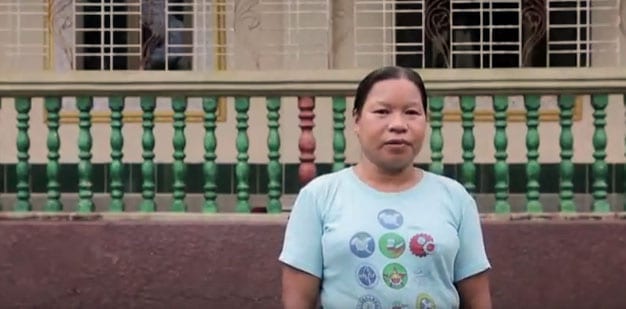
Mar 1, 2018
Hello. I am Daw Tin Tin Thein. I am 43 years old. I have worked in this factory for nine years. I am responsible for sanitation and garbage collection in this factory. It means I am responsible for keeping this factory clean and tidy.
I have been a member of the trade union for four years. During these four years, I found that the negotiations and coordination between the factory owner and the CBA [collective bargaining agreement] have resulted in many successful resolutions.
Workers receive salaries and minimum wages. Workers also enjoy transportation services and social security benefits. We conduct educational activities under the leadership of CTUM [Confederation of Trade Unions-Myanmar].





